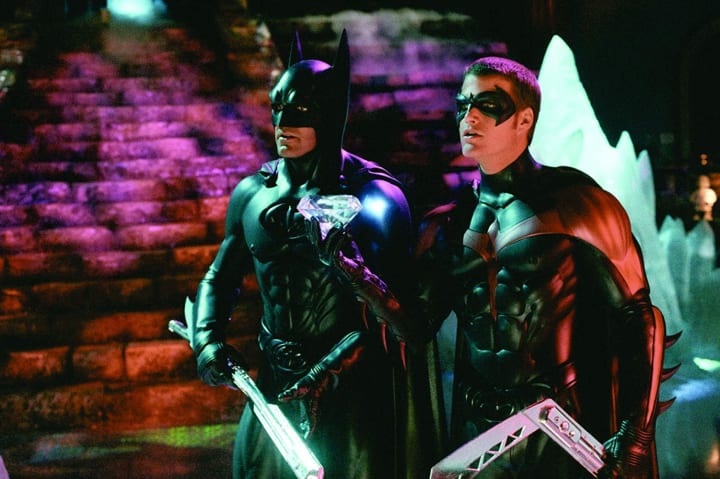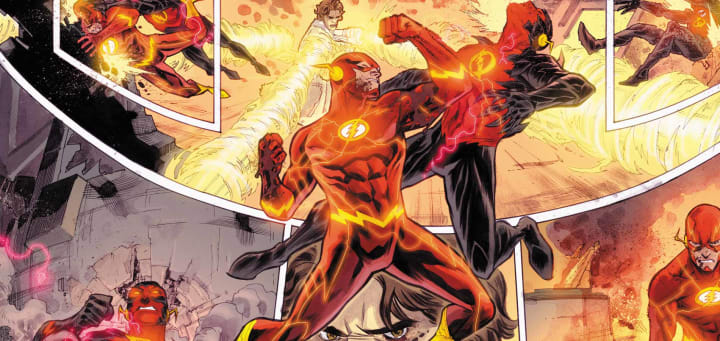"Fun" over Substance and the Fall of Real Character Development
Do studios and creators really need to give so much space to humor in superhero films?

Let’s take a deep, calm breath and have an honest look at the superhero films of today.
They make a ton of money… Check!
They made comic books cool again… Check!
They feature the superheroes we have been reading about our entire lives and after decades of torturous waiting, we finally get to watch their adventures in full glory, on the big screen…
Check… ish?
Before you read any further, I would like to make clear that superheroes did not enter my life through Hollywood. I knew them long before they became mainstream. I read their stories in the comic book pages, where they originated, long before this blockbuster-flick trend. By saying this, I am not trying to render my opinion more important than others’, but to explain how I formed it.
So, after this brief introduction, I believe that superhero films are steadily walking into becoming a complete let-down for comic book fans. Why? Because “fun” came into the equation. The jocular avalanche swiped through anything that actually mattered.
You see, contrary to what people think, or seem to think, comic books are not funny; at least, not the superhero ones. Their protagonists are not cartoons; the world they live and breathe in is set in a serious, often dramatic setting. There are a few, notable exceptions that use humor as a distinct character trait (like Deadpoolor maybe Spider-Man, for instance), but still, comic book readers who wish to have a laugh, would most likely pick up an Asterix issue.
So why do people so desperately crave for comedy elements, start to finish, in all those films? “It wasn’t fun,” wrote thousands of people all over the social media commenting on Batman v Superman. Among many, many other things, I know. But still the absence of “fun” was listed as one of the film minus points. And the term “fun “does not even refer to entertainment in a wider sense. It only refers to the humorous tone that was notably missing.
And humor just keeps piling up. Last year’s Spider-Man: Homecoming was excessively flirting with the comedy genre. This year, in Thor: Ragnarok, Marvel went mental. The audience’s feedback: “I’ve had so much fun.”
Yet, I wonder: Should one have “fun” in these movies? Do all those laughing people realise that the films they watch merely push these iconic characters far away from what their creators intended them to be? They seem to know, for instance, that Batman and Superman don’t kill in the comics (not a single person though complained when Jack Nicholson’s Joker or Terence Stamp’s Zod lost their lives on screen, but let’s ignore that), but turning Thor and Hulk into Muppets in Ragnarok clearly isn’t an issue. I asked six different people who commented on social media that The Flash was “awesome” in this year’s Justice League, whether they had ever read a single issue of The Flash. Four of them replied “No… but he was funny” and two of them said nothing at all.

So the audience seems to know a couple of basic things about those characters, but their comedic alteration doesn’t seem to bother or matter somehow, because… it’s fun! Well, if you truly care about comics—you know, the medium that actually gave birth to all those guys—I think it should matter.
Batman is not a funny guy. Superman is the kindest soul there is, but he is not funny, either. If you don’t want to take my word for it, try to remember Seinfeld and George’s conversation about Superman in the episode “The Stock Tip” where George states “I never heard him say anything really funny.” Their stories, if supported by a strong, engaging script, are entertaining enough. There is no need for pointless humorous injections that demolish their core values. Humour ruins these films, the very same way James Bond cracking jokes would fail all Ian Fleming readers.
All-Star Superman is one of the greatest stories ever written about Superman. In this story, Grant Morrison captured all the character’s definitive traits; his infinite kindness and love for the world that embraced him. And he did that presenting a serious, romantic, often melancholic figure of almost religious proportions. Wasn’t he perfect without the dumb jokes?
All those requests for Superman smiling a little more often, turned him into a cheerful “bro” in this year's Justice League, which is not exactly the icon that took decades to build. And please don’t confuse a hopeful, smiling Superman, with the guy who says “Is this guy still bothering you?” during a fight scene with the big bad villain. Adding Easter eggs or a post-credit scene with the Flash referencing the 1967 issue isn’t homage to the comics.
And speaking of the Flash, the Barry Allen I saw, had also nothing to do with the guy I‘ve been reading about all those years either. The only time I recognized him, was during the scenes he shared with his father. Other than those, he was simply a fast-running jester.

If these movies are only intended for broader audiences and box office numbers, then I suppose there is no turning back. People are happy, ticket and merchandise sales are thriving and the repetitive recipe works just fine. But if these movies are also made for the people who actually care for those characters, then they have started to fail considerably. No filmmaker would even think to mess around with Aragorn, making him tell jokes during the Battle of Helm’s Deep or have Hannibal Lecter exchanging anecdotes with Clarice Starling. Why should Superman and Thor be any different?
And finally, let’s not forget that all these films largely owe their popularity to some creative filmmakers who took the genre seriously, trusted the source material and needed no cheap jokes to elevate their work. Directors like Christopher Nolan, Brian Singer and Tim Burton who clearly pioneered the way.

I didn’t write these lines for the people who argue over Marvel and DC, who love one and hate the other, and I honestly don’t want you to think of the writer as an uptight, serious, no-fun type of person. All I have in mind is every single guy who actually liked the source material way before superheroes made their screen debut. The reader, like myself, who was disappointed by Barry Allen after watching Justice League.
To the guy who grew up reading Thor and came out of the theatre after watching Ragnarok:
Was that Thor you saw on that film or did you simply have fun?






Comments
There are no comments for this story
Be the first to respond and start the conversation.